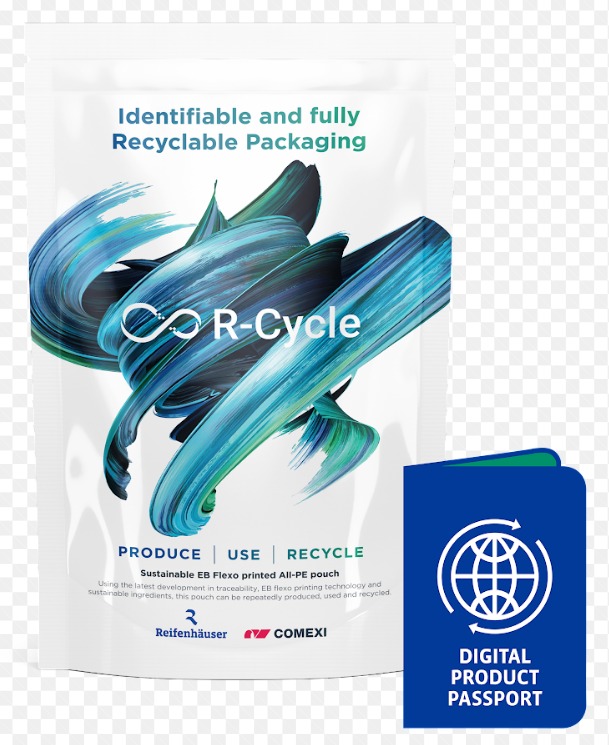

When Digital meets Circular Economy - this is not only the motto of this year's Fakuma, but also captures the essence of R-Cycle. The start-up is competing to make plastics traceable with Digital Product Passports. At Fakuma 2023 in Friedrichshafen, R-Cycle will present itself in hall ÜO, booth 16-3 (Start-Up Area) and shows the first Software-as-a-Service solution for the application of Digital Product Passports, which is based on the new GS1 Germany Guideline "Circular Plastics Traceability".
The plastics industry is confronted with steadily increasing industrial and legal information and reporting requirements. Recyclability assessments, plastic tax calculations, EPR regulations or the upcoming EU Packaging Regulation (PPWR) are just a few examples. In order to provide all necessary information, plastic products must be traceable throughout the entire life cycle. For this purpose, more and more companies are relying on Digital Product Passports (DPP), with which complex information chains can be managed simply and automatically DPP - depending on industrial or regulatory requirements. The R-Cycle DPPs generated in this way can be retrieved by machine or manually via suitable marking (e.g. QR codes or digital watermarks) on primary and end products
R-Cycle is the DPP for plastic products and packaging and offers a turnkey softwareas-a-service solution that enables stakeholders in the value chain to store relevant data in an interoperable system to enable efficient, standardized and secure data exchange across company boundaries. All relevant information, such as materials, product properties, process data and much more, can be recorded in the R-Cycle Dr. Benedikt Brenken, Director R-Cycle, explains: "The special thing about R-Cycle is that, with the help of the Digital Product Passport, we provide plastic products with all relevant information about their composition and use already during production. This means that every subsequent processor, consumer and recycler can use this data to easily fulfill information and reporting obligations, optimize production processes and ensure the best possible recycling."
R-Cycle is based on open and global GS1 standards. GS1 Germany has published the guideline "Circular Plastics Traceability", which offers all players in the plastics value chain a uniform framework for modeling corresponding cross-company processes and exchanging data. R-Cycle was involved in the development of "Circular Plastics Traceability" along with other partners. The underlying technology is the cross-industry and internationally established GS1 EPCIS interface (Electronic Product Code Information Services). GS1 is the leading global network for crossindustry process development. The best-known example of a GS1 standard is the barcodes used in global trade, which are scanned more than six billion times every day.






